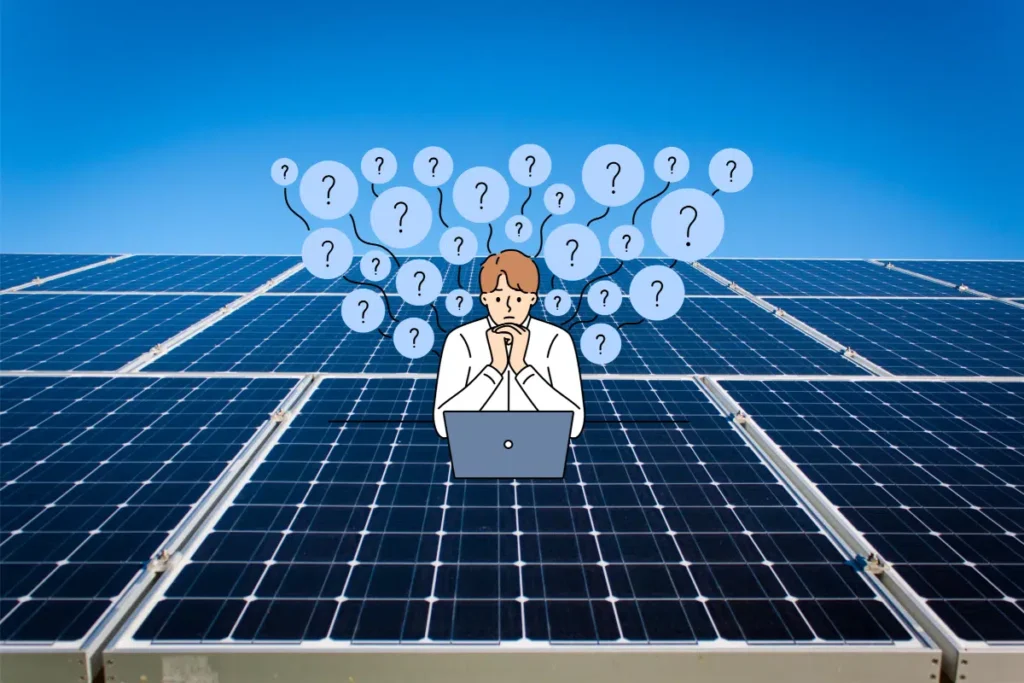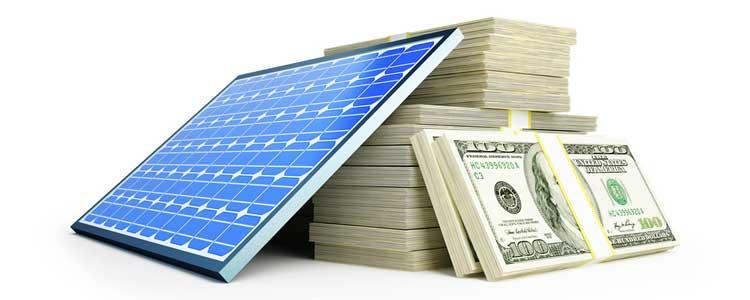
Let’s Clear the Air: it is time to Solar Power Myths Debunked. You’ve probably heard it from your uncle at a family dinner or your neighbor who “looked into it once”: “Solar doesn’t work at night.” “It’s too expensive for average households.” “Solar panels need a lot of maintenance.”
Sounds familiar? Trust me, we’ve all been there.
I’m here to set the record straight—it’s time to crush these solar myths and replace them with cold, hard facts. So, grab your chai, and let’s talk solar—not the rumors, but the real story that’s shaping the future of energy in Pakistan.
Myth 1: Solar Panels Don’t Work on Cloudy Days or at Night
Let’s tackle the most common myth right off the bat.
No, solar panels don’t work at night—that’s obvious. They need sunlight. But here’s what people get wrong: Solar panels still generate electricity on cloudy days.
Clouds might reduce the intensity of sunlight, but they don’t block it entirely. Thanks to advanced photovoltaic (PV) technology, modern panels still function efficiently even on hazy Karachi mornings or overcast Lahore afternoons.
Think of it like your skin getting tanned even under a cloudy sky—that’s how sunlight still gets through.
And for night-time? That’s where net metering and solar batteries come in—store extra power during the day and use it when needed.
Myth 2: Solar Energy is Too Expensive for the Average Pakistani Household

This one used to be true, but not anymore.
Solar panel prices have dropped by over 80% globally over the last decade, and Pakistan has seen significant price cuts as demand has grown and technology has advanced.
Today, many vendors (including some amazing local startups) offer flexible installment plans, financing options, and even government incentives for switching to solar.
And here’s the kicker:
According to market research by the Alternative Energy Development Board (AEDB), a basic 5kW solar setup can recover its cost within 3–4 years through savings on your electricity bill. After that, you’re basically getting power for free for the next 20+ years.
Curious about how solar integrates with your appliances, security, and even electric vehicles? Don’t miss our guide on Smart Solar Automation Systems | Powering Homes & Vehicles in Pakistan
Myth 3: The Maintenance of Solar Panels Is High

Honestly, this one’s just old-school thinking.
Solar panels are built to last, and they’re designed for low maintenance.
Most quality panels come with a 25-year performance warranty, and all you need is a basic cleaning every few weeks (especially in dusty cities like Multan or Faisalabad).
Here’s a simple analogy:
Maintaining solar panels is like washing your car windshield—occasional cleaning improves visibility (or efficiency), but it’s not rocket science.
And if you opt for smart solar systems, many now include remote monitoring apps, real-time alerts, and automation tools that handle the heavy lifting for you.
Myth 4: Solar Power Isn’t Reliable for Pakistani Households
We hear this one a lot: “What if the sun doesn’t shine enough?”
Reality check: Pakistan is one of the most solar-rich countries in the world, receiving an average of 8–10 hours of sunlight per day across most regions.
And with hybrid and on-grid solar systems, you’re never without power. When solar isn’t enough, you can rely on the grid, and when it is, you sell back the excess. That’s sustainability plus savings.
Fact: According to NEPRA, more than 20,000 Pakistani households and businesses have adopted net metering since its introduction—proof that solar isn’t just reliable, it’s thriving.
Myth 5: Solar Is Only for Rich or Rural People
Time to bust this one wide open.
Solar isn’t a luxury—it’s a necessity in today’s high-inflation economy.
Whether you live in a DHA bungalow or a modest 5-marla house, solar solutions are available for every scale and budget.
And if you live in a rural area? Even better. Solar eliminates dependency on unreliable local grids, empowering communities with independent and sustainable energy.
This isn’t just about comfort—it’s about energy equity.
Why These Myths Persist
Here’s the thing: myths thrive in environments where information is scarce or outdated.
In Pakistan, we’ve been slow to update public awareness around renewable energy. Combine that with a lack of proper regulation in the solar industry, and it’s easy for misinformation to spread.
But the more we educate ourselves, the more empowered we become to make better choices for our homes, our wallets, and our planet.
So, What’s the Solar Truth?
- Solar is affordable, thanks to financing and declining prices.
- It’s reliable, especially in a sun-drenched country like Pakistan.
- Low-maintenance and long-lasting systems are now standard.
- Solar automation allows seamless integration with daily life.
- Myths are just outdated beliefs—facts speak louder.
Let’s Build a Brighter Future
Look, switching to solar isn’t just an energy decision—it’s a mindset shift. It’s about taking control of your bills, protecting your family from load-shedding, and investing in a cleaner future.
So next time someone tells you “solar doesn’t work,” tell them this:
“Not only does it work—it works smarter, saves money, and powers the future.”
Ready to Bust More Myths and Go Solar? And if you’re ready to start your solar journey, reach out to our trusted solar partners in Pakistan or explore government-backed clean energy initiatives.
Want more myth-busting insights or real-world solar examples? Drop your questions in the comments or share this blog to spread the truth. Let’s make Pakistan solar-smart—together!







